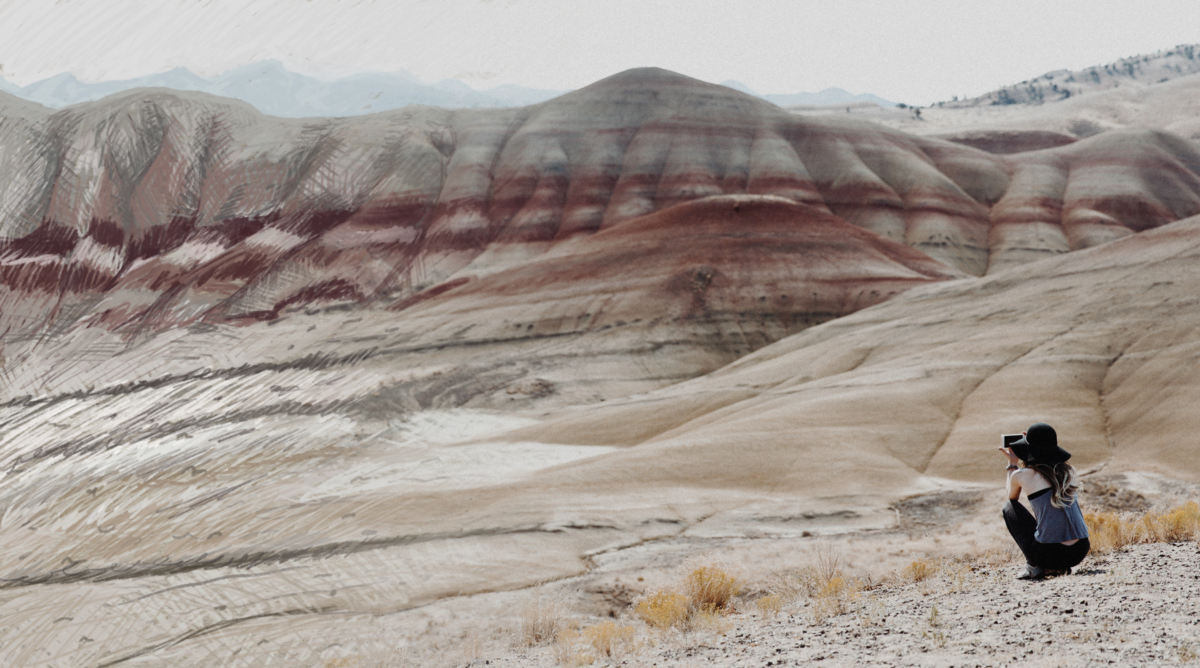
You can feel her there, in the hollows of your chest and your eyelids. In the blue veins that spider-web across your wrists. In the dark flash of heavy black wings, birds flapping from trees to wires, from wires to trees, back and forth before your windows. They look at you and caw raucously, and their voices hide her whispers.
The walls are papered in twisting patterns, dull gold and vaguely reminiscent of old paperbacks. There are her hands in the dusty yellow, her fingers trailing down the hallway; there’s the swish and rustle of her skirt, swaying from shadows to the vine-like curls of the walls. Her steps are light on the dark stairs, and yours are heavy and slow in comparison. You’re in no hurry to reach the bedroom. You’re in no hurry to reach anywhere.
You can feel her there. In the hollow of your ribcage, in the marrow of your spine. In the weaving twists of the wallpaper and the chipped carvings of the staircase. She refuses to leave, and you deserve it.
You left the bedroom window open and now a crow is on the sill, larger than the birds seem from far away, black as coal and twice as dirty. Its talons leave thin scratch-marks on the sill’s paint; it cocks its head at you expectantly.
“I’m sorry,” you say, to it and to her. You feel dull inside, like blunt metal and winter nights, but your words come out sounding rather more anguished: ragged metal and winter storms.
It caws at you, and its voice hides her whispers.
You can feel her there, in the room. In the bones of your ankles and the crystals of the hanging light above you. Her eyes are in the crystals, gleaming, glittering, raging, staring, staring, staring. Her eyes are in the crow, and you can feel her gaze boring into you.
“I’m sorry,” you try again. “I tried. I—” you don’t know what you are, really, besides tired and hollow. You settle on repeating, lamely, “I’m sorry.” What more can you say?
You can feel her there. Standing before you in a dress cut to her knees, half her hair shiny and smooth and the other half matted grotesquely with dark material. The crow caws from the windowsill.
“I’m—” Again the words fail you, even as your voice rises in volume. The crow keeps cawing, mocking you. “I’m sorry. Cora, I don’t know what to do, I don’t know—I don’t know what you want—I’m sorry, Cor—” You fall to your knees and wrap your hands around your head. It’s a desperate attempt to block out the bird’s voice and her whispers, but still she’s there, in the cut of your fingernails, in the shallow tightness of your breath. You can see her shoes, white satin crusted in brown earth, and you shut your eyes.
Abruptly the bird falls silent. When you dare to look around again, it’s gone: only thin lines on the windowsill mark it as ever having been there in the first place. In the grey of the clouds, in the beat of your pulse, in the tiny form of a faraway bird…you can feel her there.

